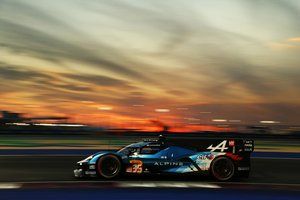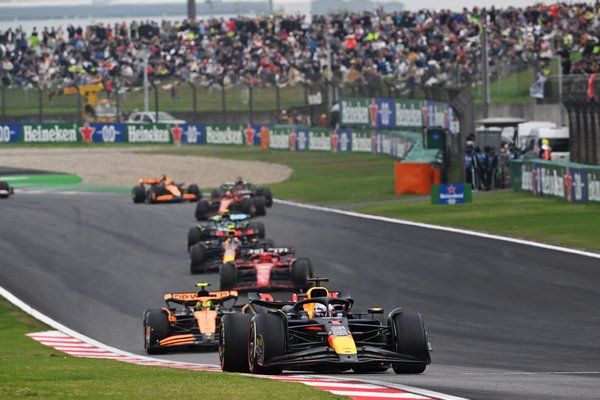Analysis: youngsters usher in new F1 era
While Michael Schumacher celebrated his 38th birthday in the quiet of retirement this week, Formula One could look forward to a new year with the focus on youth

Spaniard Fernando Alonso, moving to McLaren after two titles with Renault, is the youngest double world champion at the age of 25.
The arrival alongside him of Briton Lewis Hamilton, who turns 22 on Sunday, means former champions McLaren will have by far the youngest line-up when the season opens with the Australian Grand Prix in Melbourne on March 18.
Schumacher's Ferrari, now with Finland's Kimi Raikkonen (27) and Brazilian Felipe Massa (25), have not started a campaign with two such young drivers since New Zealander Chris Amon (then 24) paired up with 23-year-old Belgian Jacky Ickx in 1968.
Formula One has lost a fistful of the over-30s who started last year while embracing change and a bumper crop of hungry young rookies for the post-Schumacher era that is about to unfold.
Gone with the extraordinarily successful German are Canada's 1997 world champion Jacques Villeneuve, mercurial Colombian Juan Pablo Montoya, Portuguese journeyman Tiago Monteiro and hapless Japanese rookie Yuji Ide.
The empty places have been filled mostly by men still in their 20s, if not all from the same generation, Hamilton, Finland's Heikki Kovalainen, Germany's Adrian Sutil, Briton Anthony Davidson and Poland's Robert Kubica.
Yet despite the youth revolution, Ferrari and McLaren are in a minority.
Assuming that Toro Rosso retain American Scott Speed and Italian Vitantonio Liuzzi, a majority of the 11 teams will start the season with, on average, an older line-up than in 2006.
That includes champions Renault, since Kovalainen is only three months younger than the champion he replaces while 34-year-old Italian Giancarlo Fisichella stays put.
Honda, Toyota and Williams, the first two with the same drivers from last year and the latter bucking the trend by replacing Australian Mark Webber with 33-year-old Austrian Alexander Wurz, are all longer in the tooth.
Red Bull, the team owned by the Austrian energy drink company with a big eye on the youth market, have the oldest pairing of all with Briton David Coulthard remaining and Webber (30) replacing 23-year-old Austrian Christian Klien.
Coulthard, 35, is now the old man of Formula One, remarkable considering Britain's last two champions Damon Hill and Nigel Mansell were 36 and 39 respectively when they collected their titles.
Fifty years ago, the Scot would have been a comparative youngster. Argentine Juan Manuel Fangio made his debut in 1950 aged 38 and won his fifth championship at 46.
Australian Jack Brabham was a champion at 40, France's Alain Prost and American Mario Andretti at 38.
The average driver age this year is 27, compared to 28 in 2006. All the signs are that the youth trend, fuelled by competitive go-karting from the age of eight and the sheer physical demands of driving a modern Grand Prix car, will continue accelerating.
Schumacher was the best riposte to ageism. Even at 37, the seven times champion remained the man to beat. He had reached the summit but, as he showed in his last thrilling race in Brazil, was far from over the hill.
With Raikkonen and Alonso he formed a triumvirate apart from the rest. It remains to be seen who, if anyone, will step up to join the other two but none of the current over-30s would be on the list.
McLaren boss Ron Dennis was dismissive of pretty much all of them when asked last November whether there had been anybody already in Formula One who had impressed him as much as Hamilton.
"If you take out the recognised top three, one of whom retired, we felt that in looking at the others...there was no one who really shone," he told reporters.
Coulthard and Fisichella represent continuity and experience for their teams but could be replaced by younger men come the end of the year.
Brazilian Rubens Barrichello, now 34 and the driver who has been around longest since making a precocious debut as a 20-year-old with Jordan in 1993, can also take nothing for granted at Honda.
"Formula One does need a new influx of young people," team boss Nick Fry told Reuters last month.
"(There are) a number of drivers in Formula One who have been there a long time and I wouldn't anticipate that a number of them are going to be there much longer."
Be part of the Autosport community
Join the conversationShare Or Save This Story
Subscribe and access Autosport.com with your ad-blocker.
From Formula 1 to MotoGP we report straight from the paddock because we love our sport, just like you. In order to keep delivering our expert journalism, our website uses advertising. Still, we want to give you the opportunity to enjoy an ad-free and tracker-free website and to continue using your adblocker.













Top Comments